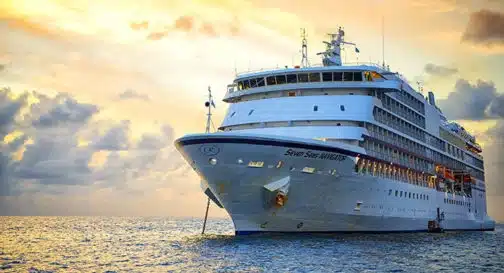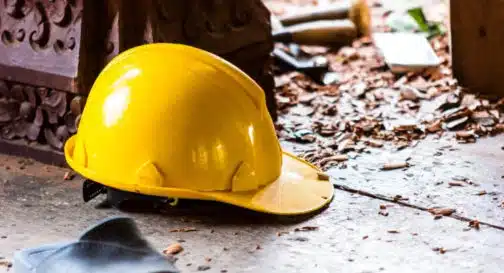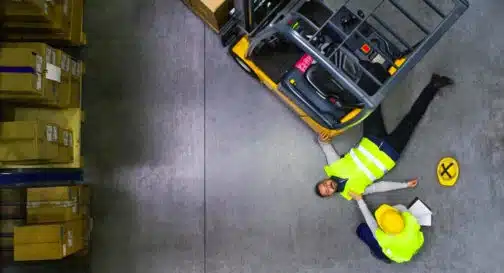What Are Your Rights as an Injured Dock or Harbor Worker?
A harbor worker or dockworker injured on the job may recover medical benefits and lost wages through the Longshoreman and Harbor Workers’ Compensation Act (LHWCA), but that injured worker should have the services and advice of a California Longshore Act attorney.
If you are injured as a longshore worker, what are your rights? What steps will you need to take? How will a maritime injury attorney help you obtain compensation for your medical costs and lost earnings?
Every longshore worker injured in a job-related accident should have sound legal advice and effective representation. After you’ve been examined and treated by a medical provider, schedule a consultation to discuss your case with a California Longshore Act lawyer.
What Does the Longshore and Harbor Workers’ Compensation Act Provide?
The Longshore and Harbor Workers’ Compensation Act is the federal law that makes workers’ compensation benefits available to dockworkers and others who work on or near the water but are not part of a vessel’s crew. LHWCA benefits partially replace an injured longshore worker’s earnings, pay for reasonable medical care, and, if necessary, for vocational rehabilitation.
In most cases, longshore workers must report injuries to their employers within thirty days to qualify for LHWCA benefits. Injured longshore workers also must report job-related injuries to the Department of Labor’s Office of Workers’ Compensation Programs within thirty days.
The accident report form your employer provides may ask you to describe how you were injured and who was at fault. If you don’t want to state your employer was responsible, write that you aren’t sure who was at fault, and then contact a California Longshore Act attorney immediately.
How Does the LHWCA Process Work?
The Department of Labor’s Division of Longshore and Harbor Workers’ Compensation (DLHWC) administers LHWCA claims. At an informal meeting, the DLHWC will hear from you, your employer, and the worker’s comp insurance carrier before it makes a recommendation.
Your lawyer should represent you at this meeting. If you and your employer agree to the DLHWC recommendation, the matter is resolved, but if either party disagrees, that party may file a Form LS-207 and take the case to the Office of Administrative Law Judges.
At this time, both sides may send discovery requests to each other, ask each other questions, and request documents. The parties may also schedule depositions to question witnesses under oath.
At the end of the discovery process, an Administrative Law Judge conducts a formal hearing, where your attorney will explain how you were injured, how seriously, and how much compensation you have the right to recover. When a ruling is issued, either side may appeal.
How Do Injured Longshore Workers Obtain Benefits and Medical Treatment?
When an injured longshore worker brings an injury claim under the LHWCA, that worker must see a doctor on the list of approved providers or seek permission from the employer – or a judge – to see a doctor not on the list. Your doctor’s diagnosis of your injury may determine:
- if you qualify to receive LHWCA benefits
- when you can return to work
- what ongoing care and treatment you may need
If you disagree with the doctor’s diagnosis, take your concerns to a California Longshore Act lawyer who will explain your options and rights and suggest the best way to proceed.
Can Employers Retaliate Against Injured Longshore Workers?
Some employers rely on fear and intimidation to prevent longshore workers from filing LHWCA claims. Injured longshore workers may fear employer reprisals or be concerned about ending up on a blacklist and being unable to work in the maritime industry.
It’s illegal for employers to discipline or retaliate against longshore workers who bring LHWCA claims. Employer retaliation may include termination, demotion, or subjecting you to a hostile work environment simply because you’re seeking benefits that are rightfully yours.
Provided that you’re telling the truth, file your LHWCA claim with the expectation you will recover the compensation you are entitled to under federal law. If you experience any employer intimidation or retaliation, tell your maritime injury lawyer at once.
How Will Your Attorney Help?
If you become a target of employer retaliation after you file an injury claim, and you have evidence of that retaliation, your attorney may help you bring a separate claim against your employer for back wages, reinstatement, and additional damages.
Even if no employer retaliation is involved, if you are a longshore worker and you’ve been injured on the job, a California maritime injury attorney will work to help you win:
- Adequate compensation for your medical costs and lost earnings: Injured longshore workers have the right to recover compensation for their injury-related medical expenses, lost wages, and other losses related to job-related accidents and injuries.
- Long-term disability compensation: Catastrophic injuries may cause permanent disabilities, but your LHWCA claim can provide long-term disability benefits if you’re unable to continue working.
- Improved conditions: Holding employers liable for negligence, defective equipment, inadequate training, or hazardous conditions can help prevent similar injuries in the future.
Discuss Your LHWCA Claim With One of Our Attorneys
As a longshore worker, immediately after you’ve been examined and treated for a work-related injury, contact the Law Offices of Preston Easley. You should have sound legal guidance and advice from the beginning of the legal process. We can ensure that:
- You don’t miss any deadlines.
- Your legal paperwork is complete and accurate.
- Your benefits are not delayed due to a misunderstanding or a mistake on your end.
For over thirty years, personal injury attorney Preston Easley has fought aggressively and effectively on behalf of the injured victims of negligence. Our senior associate, attorney Peter Yovanovich, is an award-winning advocate for the injured, focusing on maritime injury cases.
If you have been injured as a harbor worker or dockworker, you are probably entitled to benefits under the LHWCA. You can call the Law Offices of Preston Easley from anywhere in Hawaii or California at 310-773-5207 to schedule your first legal consultation with no cost or obligation.

Preston Easley is a graduate of the United States Naval Academy in Annapolis, MD. He served five years of active duty as a Naval officer — three years as a deck officer on a fast frigate and two years as a patrol boat skipper. Mr. Easley also served aboard a tank landing ship in the reserves. Learn more here.












